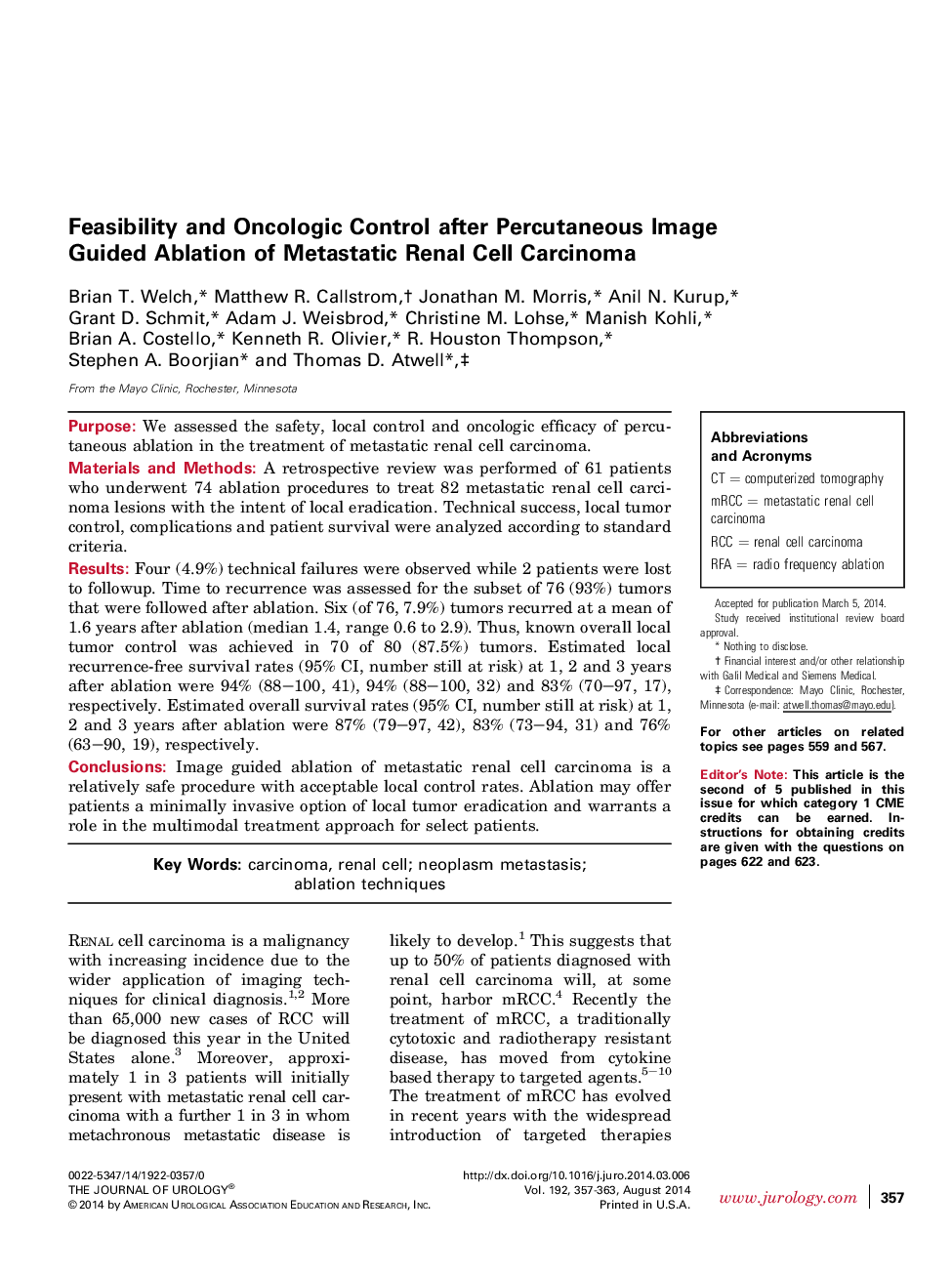| Article ID | Journal | Published Year | Pages | File Type |
|---|---|---|---|---|
| 3861053 | The Journal of Urology | 2014 | 7 Pages |
PurposeWe assessed the safety, local control and oncologic efficacy of percutaneous ablation in the treatment of metastatic renal cell carcinoma.Materials and MethodsA retrospective review was performed of 61 patients who underwent 74 ablation procedures to treat 82 metastatic renal cell carcinoma lesions with the intent of local eradication. Technical success, local tumor control, complications and patient survival were analyzed according to standard criteria.ResultsFour (4.9%) technical failures were observed while 2 patients were lost to followup. Time to recurrence was assessed for the subset of 76 (93%) tumors that were followed after ablation. Six (of 76, 7.9%) tumors recurred at a mean of 1.6 years after ablation (median 1.4, range 0.6 to 2.9). Thus, known overall local tumor control was achieved in 70 of 80 (87.5%) tumors. Estimated local recurrence-free survival rates (95% CI, number still at risk) at 1, 2 and 3 years after ablation were 94% (88–100, 41), 94% (88–100, 32) and 83% (70–97, 17), respectively. Estimated overall survival rates (95% CI, number still at risk) at 1, 2 and 3 years after ablation were 87% (79–97, 42), 83% (73–94, 31) and 76% (63–90, 19), respectively.ConclusionsImage guided ablation of metastatic renal cell carcinoma is a relatively safe procedure with acceptable local control rates. Ablation may offer patients a minimally invasive option of local tumor eradication and warrants a role in the multimodal treatment approach for select patients.
